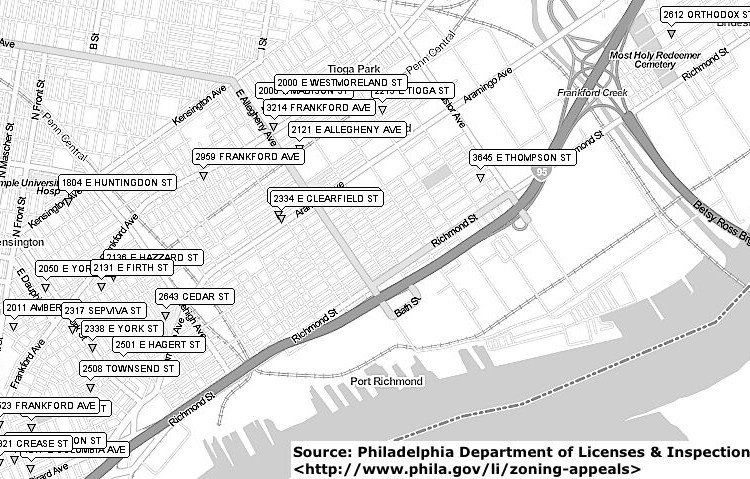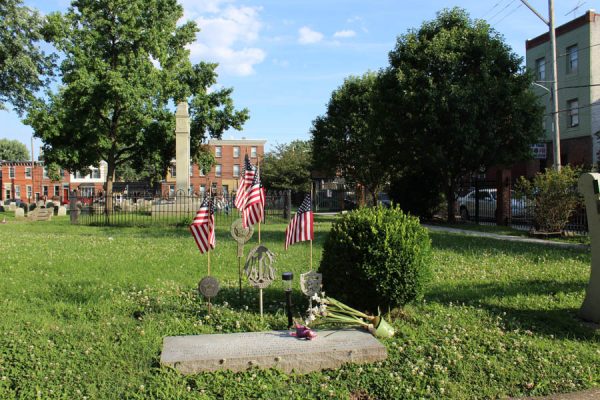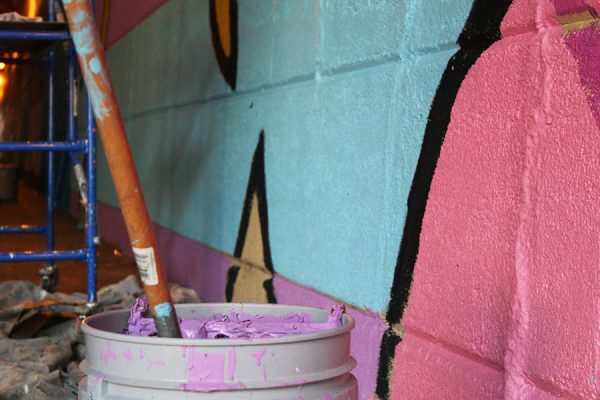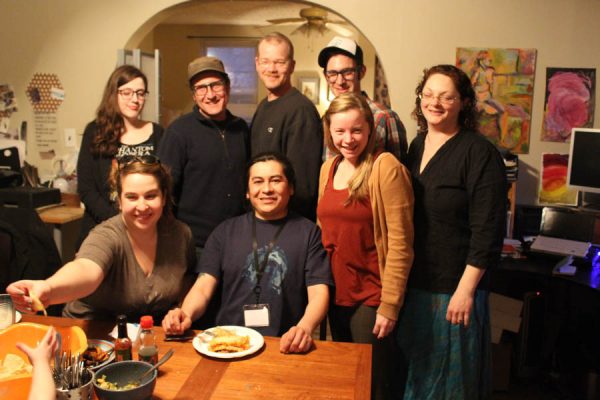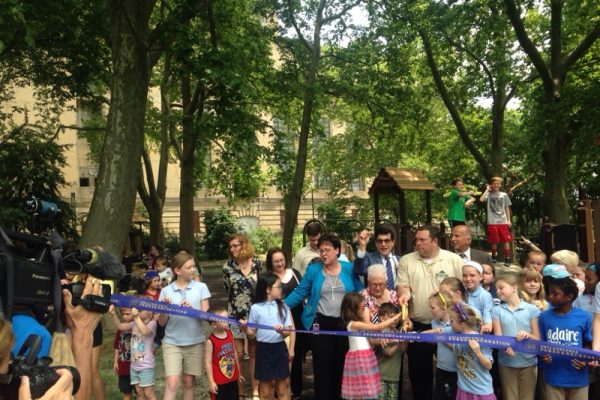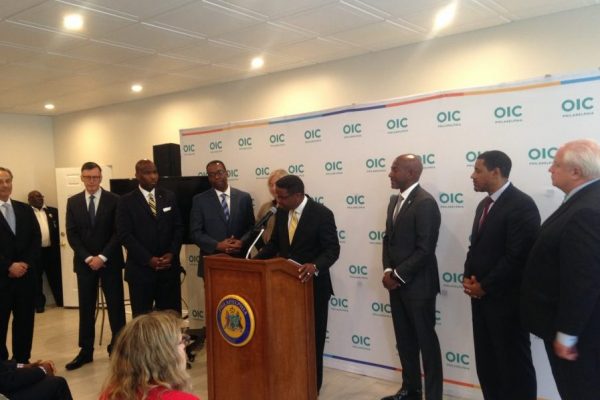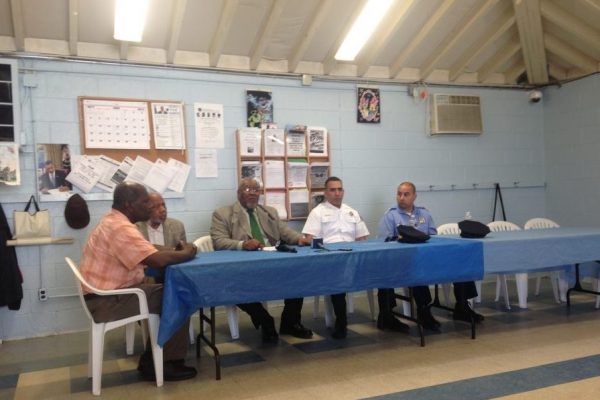Pay to Play at the ZBA? How to Participate in Zoning Without Throwing D Batteries
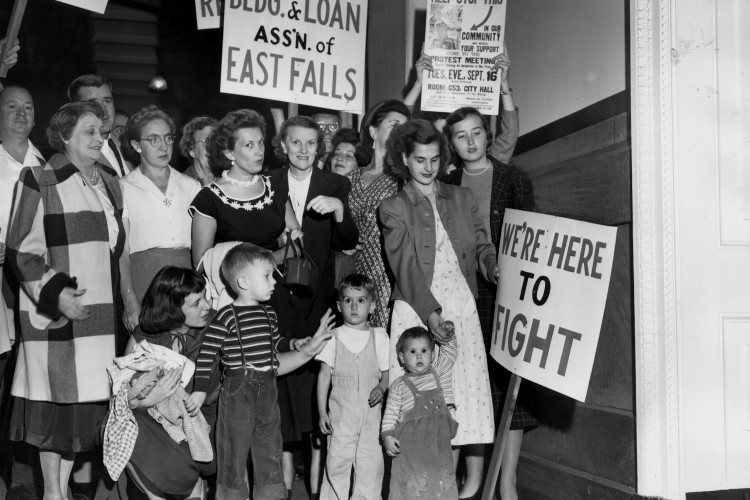
East Falls residents protest a proposed Zoning Board of Adjustments decision. Philadelphia Bulletin published this photograph in 1952. Credit: Special Collections Research Center, Temple University Libraries, Ph.
This city takes public participation seriously. Ask the Phillies fans who threw D batteries at Cardinals centerfielder J.D. Drew during a 1999 game against Philadelphia. While The Spirit doesn’t condone the metal projectile school of civics, the above-pictured people appealed a zoning decision and stopped a company from building an incinerator near their homes; that’s pretty cool in our opinion.
We published a guide this past May, “Zoning for Dummies,” which discussed the basics of zoning in Philadelphia. As a spiritual successor, this article aims to get deeper into the zoning variance petitioning process and its possibilities and pitfalls as a method of civic engagement.
Philadelphia’s Zoning Board of Adjustments (ZBA), part of the Department of Licenses and Inspections, convenes weekly on the 18th floor of 1515 Arch St. These are the people to talk to if you want to change a factory into apartments or get the right permits for that racquetball league you’ve run in your garage for two years.
As zoning variance decisions are necessary for certain construction projects, they can mean big changes in some peoples’ neighborhoods and big business deals for others. We residents of the Riverwards are well aware of this fact.
As per Philadelphia’s Zoning Code, property owners must show the ZBA the change they’re asking for:
- is the minimum change necessary to fix the alleged problem that prompted the requested variance,
- is not at odds with the Zoning Code’s general intentions,
- will not unduly crowd the streets, create fire hazards or otherwise “endanger public health, safety, or general welfare,”
- will not place undue burden on things everyone uses like sewers, schools, parks, etc.,
- will not interfere with any of the city’s long-term plans for the area and
- will not cause additional erosion, pollution, flooding or other environmental damages.
While ZBA’s word trumps your local Registered Community Organization’s, dissatisfied residents can appeal ZBA decisions to Philadelphia’s Common Pleas Court. That’s what our East Falls friends did in the 1950s. From there, these disputes can and sometimes do travel as far as Pennsylvania’s Supreme Court.
With the reminder that none of this is bona fide legal advice, appealing a ZBA decision basically means suing the City of Philadelphia.
Through such lawsuits, courts can reverse ZBA decisions if plaintiffs can prove the ZBA abused their discretion by granting or denying a given request. In July of this year, for example, Philadelphia’s Court of Common Pleas and the Pennsylvania Commonwealth Court agreed: the ZBA abused its discretion by refusing convenience store owner Shao Bao Guan’s request to expand his 52nd & Arch St. operation to include a takeout restaurant.
Objectors to the plan argued that a new takeout business on the street would increase area drug traffic. The higher courts dismissed the drug traffic argument as speculative and the ZBA’s denial of Guan’s request was reversed.
Appeals of ZBA decisions can stall construction for years when lodged strategically, and cost developers thousands of dollars in legal fees and lost sales.
Don’t understand the zoning rules? Don’t worry. No one else does either. The ZBA itself is known to use a cheat sheet to help keep its own rules straight, according to a guide entitled Understanding Philadelphia Zoning: An Overview of the Zoning Code in an Ever-Changing Philadelphia. It’s available at Jenkins Law Library downtown. Public access costs $5.
Like cigarette smoking, appealing a ZBA decision is riskier now than it was in the 1950s. This is due in part to the Dragonetti Act, which takes as its namesake the now departed Joseph W. Dragonetti. He was a Daily News columnist and publicist from the nearby neighborhood of Frankford.
Dragonetti spent five years as a defendant in a lawsuit over a matter he believed never directly concerned him in the first place. After Dragonetti was dismissed from the case, he could find no law by which he could claim payback for the wasted time and damages his reputation suffered as a result of being named in the lawsuit.
He wrote legislation to fix this problem and convinced the Pennsylvania legislature to adopt it. 42 Pa. C.S.A. § 8351, commonly known as the Dragonetti Act, became law in 1980.
The Dragonetti Act now sets its breath afire when someone sues someone else for reasons other than those for which the civil process is ideally intended: to shut them up, threaten them, stop or delay them from doing something, smear them, bankrupt them, etc. Attorney Daniel J. McAuliffe referred to such tactics as “junkyard dog” litigation in a 2000 Business Law Today article he published on the topic.
Dragonetti is uniquely scary to lawyers because lawyers themselves can be held liable alongside those they’ve represented. Say you appeal a ZBA decision in a manner someone else considers a “wrongful use of civil proceedings.” Dragonetti entitles that “someone else” to intervene and countersue both you and your attorney.
This is all quite relevant to zoning disputes. Given the amount of money involved and the inevitably personal nature of the disagreements, junkyard tactics often figure into these negotiations both in and out of court.
Still thinking of going to a ZBA hearing as either a spectator or a litigator, even now that you’ve been properly scare mongered regarding the dangers of appealing its decisions? There’s a list of hearing dates and times available on the City of Philadelphia’s website. Below is a map of zoning variance proposals in the Riverwards awaiting ZBA stampage over the next few months:
You’d be well-advised to arrive early for a front-row seat, as the administrative banter can be hard to hear and decipher. See you at the next meeting. Leave the D batteries home.
